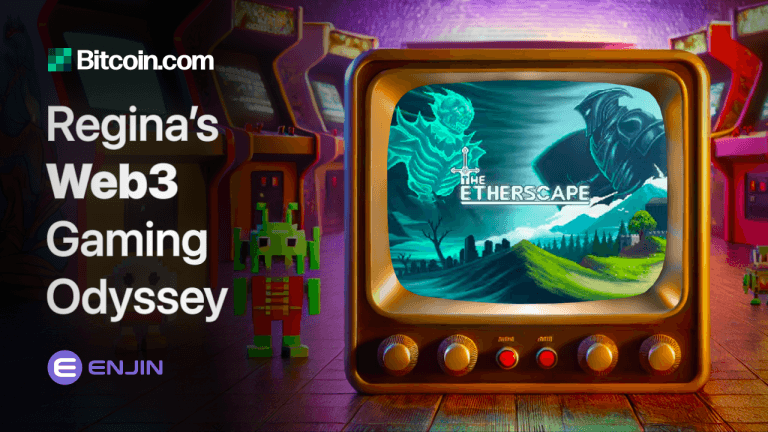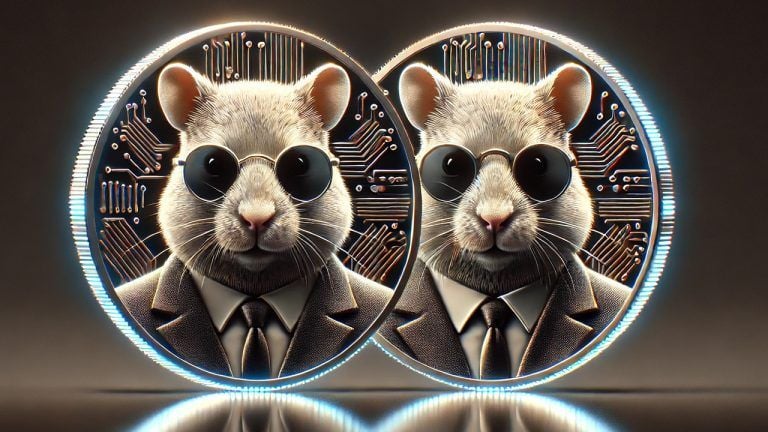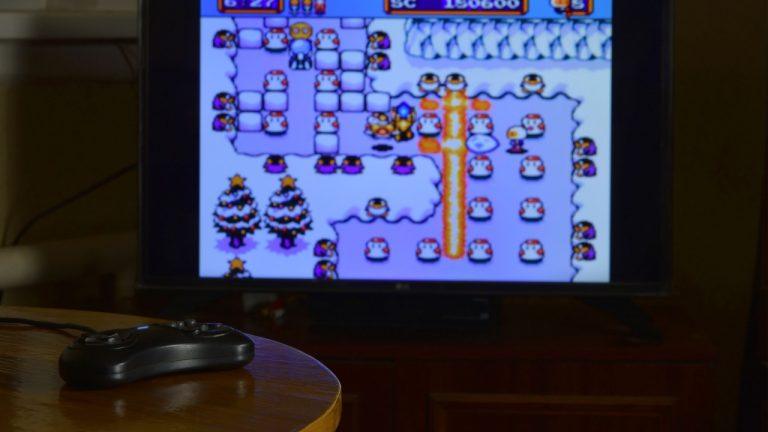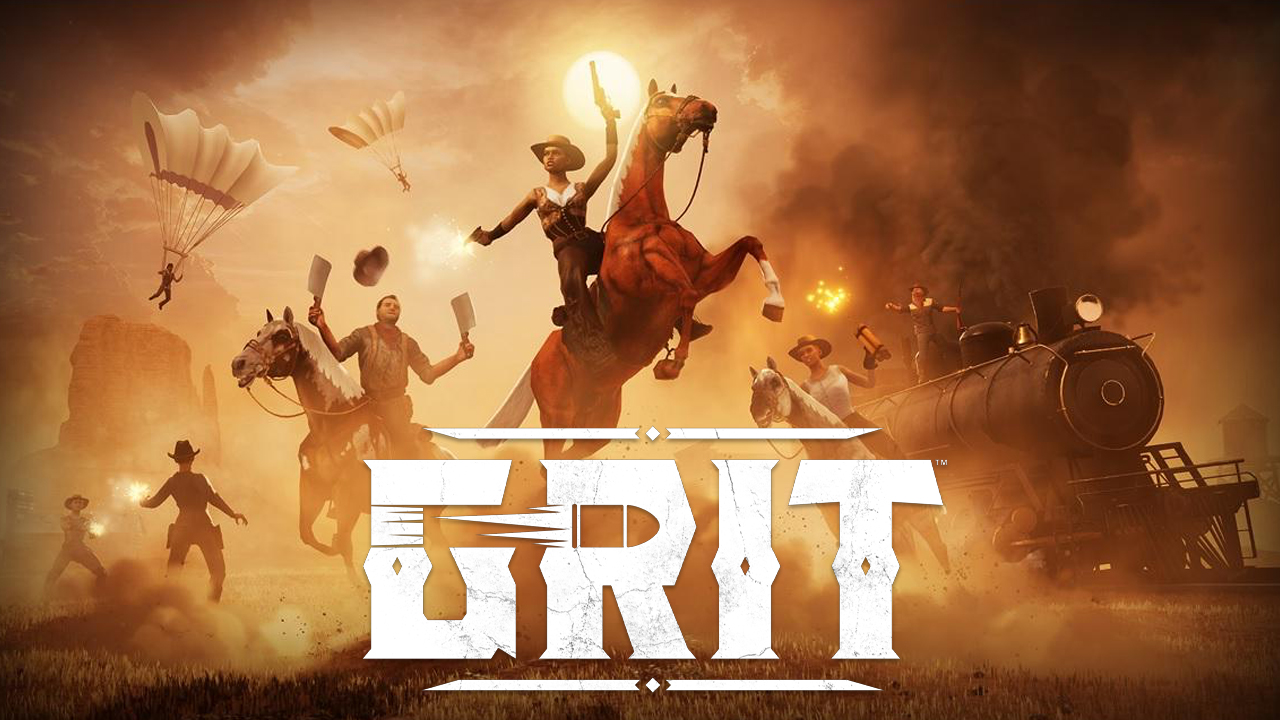 Join Regina as she uncovers the allure of this dungeon-crawling sensation dominating charts just days after its release. Last Episode’s Quick Recap Portal Fantasy – an exciting new Web3 game blending traditional RPG mechanics with blockchain elements. Players can explore vast, vibrant worlds as Portals (adventurers) or engage as Architects (world-builders), crafting immersive game experiences. […]
Join Regina as she uncovers the allure of this dungeon-crawling sensation dominating charts just days after its release. Last Episode’s Quick Recap Portal Fantasy – an exciting new Web3 game blending traditional RPG mechanics with blockchain elements. Players can explore vast, vibrant worlds as Portals (adventurers) or engage as Architects (world-builders), crafting immersive game experiences. […] On Sunday, Sept. 29, 2024, market data revealed that the TON-powered crypto asset, hamster kombat (HMSTR), experienced a 14% drop against the U.S. dollar over the last day, just three days after its market debut. Initially trading at $0.009993 per token when it first hit major exchanges, HMSTR has since lost over 42% of its […]
On Sunday, Sept. 29, 2024, market data revealed that the TON-powered crypto asset, hamster kombat (HMSTR), experienced a 14% drop against the U.S. dollar over the last day, just three days after its market debut. Initially trading at $0.009993 per token when it first hit major exchanges, HMSTR has since lost over 42% of its […] A subsidiary of Animoca Brands has launched the open beta of its new Web3-centric action game, Cosmic Bomber. Developed by industry veterans from Sony, Electronic Arts, Nintendo, Lucas Arts, and Blizzard, the game is now available to over 1.77 million holders of Moca ID, the identity layer of Animoca Brands’ network. Cosmic Bomber offers strategic […]
A subsidiary of Animoca Brands has launched the open beta of its new Web3-centric action game, Cosmic Bomber. Developed by industry veterans from Sony, Electronic Arts, Nintendo, Lucas Arts, and Blizzard, the game is now available to over 1.77 million holders of Moca ID, the identity layer of Animoca Brands’ network. Cosmic Bomber offers strategic […]
Guild of Guardians is a dungeon-crawling mobile adventure game with a play-to-earn twist.
From Oct. 9–20, Immutable invited playtesters to try out an early demo of its upcoming mobile game, Guild of Guardians.
Guild of Guardians was first announced in 2021. Its utility token, Guild of Guardians Gems (GOG), went up for sale in December 2021, raising over $5.3 million for the game’s development. In addition, over 800,000 individuals registered for the token sale, which Immutable claimed was an “oversubscription” of 82 times vs. the expected demand. It is being developed by Mineloader, which is the same company that created the Final Fantasy VII remake and Final Fantasy XIV: Endwalker. Gods Unchained creator Immutable is publishing the game.
According to the game’s roadmap, it is expected to be released in open beta sometime in the fourth quarter of 2023. The Guild of Guardians documents state that it will be a free-to-play and play-to-earn mobile game. Players will not need to make any purchases to begin playing the game and start earning nonfungible tokens (NFTs) or game tokens. To finance the game’s further development after launch, Immutable will sell “seasonal content” consisting of limited edition NFTs, including “heroes, pets, guilds and energy boosters.” They will also charge a percentage fee on secondary sales of some of the game’s items.

The play-to-earn aspect of Guild of Guardians will revolve around crafting equipment and summoning heroes. Players will be able to earn crafting materials as they progress through dungeons, which they’ll be able to use to mint NFTs that represent gear. They’ll also be able to collect “common” heroes that can be combined into higher rarities and minted on the blockchain. Guild of Guardians NFTs are minted on the Immutable X network, while the GOG token is on Ethereum.
Ever since the fundraise, details about the state of the game’s development have been scarce. But Immutable invited members of the media to playtest the game From Oct. 9 to 20, and this writer was one of the persons invited.
Guild of Guardians is designed entirely for mobile. You can play it on a mobile phone or tablet, and it’s available for both iOS and Android. But there’s no way currently to play it on a PC or console, and the team doesn’t appear to be planning to make a PC version anytime soon, if ever. The controls of the game are optimized for mobile gameplay, as the battles are mostly automated, with very little real-time control during fights.
Related: What is Gods Unchained, and how to play it.
In the Guild of Guardians docs, the team emphasized that mobile games are more accessible than any other type of video game. The number of people in the world who own smartphones is much greater than the number who own PCs, which is why they chose to make Guild of Guardians strictly a mobile game with touch-screen controls.
Guild of Guardians is a classic “dungeon-crawl” game. The main gameplay consists of progressing through various dungeons, fighting monsters and opening treasure chests for loot. Players can choose which dungeon to explore by clicking on it from within an in-game world map.
Once a dungeon is chosen, the player’s party of heroes loads into the first room, which usually contains monsters that can be fought. After each room is cleared, the player can choose which room to go to next. Different rooms contain different enemy strengths and rewards, and the player is presented with these metrics when making the decision. Some rooms contain treasure chests, healing or other boosts that may help the party to progress.
Once a player progresses through all of the choices and defeats all the monsters, the dungeon ends. In this case, the main menu pops back up, and the heroes who died in the dungeon are resurrected. If all party members die before the dungeon is completed, the player fails the dungeon. However, they still get to keep the items they acquired from their partial completion.
New dungeons become unlocked as old ones are completed. If the player completes all of the dungeons, they unlock a new “infinite” mode. This mode apparently allows a player to play through never-ending randomly generated dungeons for even more loot. I unfortunately didn’t make it far enough to test out infinite mode.
The game has mostly automated battles. To start a battle, the player clicks on a “fight” button and watches the fight play out. They can choose to activate characters’ ultimate abilities manually, in which case there is some interaction during battles. However, they can also choose to have these abilities activated automatically, making the battles a completely passive experience.

The challenge to winning a battle comes from decisions made before it begins. Before entering a dungeon, the player chooses which heroes to put into a party. Each hero has different abilities. Some are tanks or healers, while others are focused on damage-dealing. To succeed, the player needs to create a party out of characters whose abilities complement each other. In addition, characters can be placed in various positions within the party’s formation before a battle begins. Tanks should go in the front, while ranged damage dealers and healers should be placed in the back. Players also influence their ability to win by deciding which gear to outfit their characters with.
I found that the battles were pretty balanced in terms of difficulty. My party cleaved its way through lots of small trash packs with ease, while there were a few bosses that slaughtered them without mercy. I was happy to see that heroes are automatically resurrected after a dungeon failure.
Two of the most important goals in Guild of Guardians are to collect heroes and craft equipment. To get a new hero, the player must obtain a “summon,” which allows them to roll for a randomly selected hero. There seems to be a wide variety of heroes that can be collected, each with different artwork, ultimate abilities and stats.
Some of the “summons” can be obtained as rewards for exploring dungeons, while a certain number are also given out as login rewards. Players get two heroes in the tutorial: one tank and one healer.
I found that the hero-collecting system was a pretty satisfying reward mechanic. The heroes had a lot of variety in terms of stats and abilities, which made getting a new hero feel significant.
To craft gear, the player needs to collect crafting materials within dungeons. I crafted a single item throughout my playtest sessions but couldn’t gain more experience than that. The game’s documents state that gear items differ in terms of rarity, with more rare items requiring more rare materials to craft. Different pieces of crafted gear provide different unique buffs; some items are parts of sets that give bigger bonuses if a character wears more than one piece from the set, the documents stated.
Related: Game review: Axie Infinity currently rules the Pay-to-Win-to-Earn roost
The Guild of Guardians demo that I played was an early version of the game. The public release will likely have more features and content. But so far, the game’s development seems to be on the right track. The battles are challenging, and there are a variety of strategic decisions the player has to make in order to succeed. This is not a run-of-the-mill play-to-earn game featuring mindless grinding for cryptocurrency. The gameplay is engaging and requires significant thought from the player. Fans of turn-based RPGs may enjoy Guild of Guardians, as it scratches their itch for strategic challenges.
On the other hand, players who are looking for Diablo-style real-time action may want to pass over Guild of Guardians when it’s released. The battles in the game are almost entirely automated, so there’s no test of reflexes in this particular dungeon-crawler.
The views, thoughts and opinions expressed here are the author’s alone and do not necessarily reflect or represent the views and opinions of Cointelegraph.

As soon as a gamer cashes out an in-game asset, they realize monetary value, which is where the problem with the SEC comes in, a Shrapnel executive told Cointelegraph.
The creators of blockchain game Shrapnel — an upcoming AAA first-person extraction shooter — will be cutting a part of its game for United States-based players, in order to avoid the potential ire of the country’s securities regulator.
The game, which is due to launch in early access in December, will be unrestricted for players from Europe and Asia but gamers from the U.S. will not be able to cash out at all, says Shrapnel Head of Economy Francis Brankin in a Sept. 13 interview with Cointelegraph at Token 2049.
“They [U.S. users] can do everything every other player can do, but they can't cash out. Because that's what makes it a security to the U.S. player, as soon as they can realize monetary value, that’s where the problem comes in.”
He hopes the issue will be temporary and that Neon — the team behind Shrapnel — will soon enable U.S. users to bridge capital accrued from Shrapnel to their bank accounts.
〉Getting ready to extract. pic.twitter.com/kq6B07Ub97
— SHRAPNEL (@playSHRAPNEL) September 13, 2023
Shrapnel is a first-person extraction shooter set on 2038 Earth, where players scavenge for loot and attempt to extract their winnings — all the while being hunted by enemies and other players.
The game also allows gamers to build open economies and possess the intellectual property rights over in-game assets as opposed to merely creating value from the game itself, Brankin explained.
This was one of the main reasons why the firm’s CEO, Mark Long decided to go down the blockchain route. Users can build a brand, create and then sell in-game assets from the ground up.
“User generated content is clearly a big thing,” Brankin explained, pointing to Roblox and Minecraft as textbook examples.
✦ SHRAPNEL INSIGNIA Beta is now available to the public! ✦
— SHRAPNEL (@playSHRAPNEL) June 16, 2023
Create your own personalised designs and build out your unique brand!
From intricate emblems to eye-catching symbols, custom patterns and elaborate scenes – you can design whatever your imagination desires!
https://t.co/OVQju6PNdv pic.twitter.com/wZkfyzbCmE
Brankin said Neon chose Avalanche because of its scaling capabilities.
Shrapnel can currently process 2 million transactions per hour (555 TPS) which is sufficient for the time being but over time it’ll be easier to scale up on Avalanche, Brankin explained.
Related: Saudi Arabia looks to blockchain gaming and Web3 to diversify economy
Neon will launch an early access version of the game in December to paid users before it evolves into a free-to-play game.
While the limitations imposed on U.S. users serves as a roadblock for Shrapnel’s upcoming launch, the co-founder of Sandbox told Cointelegraph the metaverse (and gaming generally) is dying in the U.S. but thriving in Asia — particularly Hong Kong, South Korea and Japan.
Magazine: Web3 Gamer: GTA owner joins Web3, Bitcoin casino, Sunflower Land review

Explore Immutable, the leading Web3 game development platform to build and scale Web3 games.
The majority of DApps on Immutable fall under the category of Gaming and Collectibles.
Several games are currently being built on the Immutable platform ranging from RPGs to sci-fi exploration, and autobattlers to massively multiplayer online role-playing games (MMORPGs). Some of these include:
Immutable uses a decentralized governance system via IMX as the native utility token on the Immutable platform.
The IMX token is an ERC-20 token with a total token supply of 2 billion. Incentives among traders, creators and markets are balanced by the IMX token, ensuring rewards go to pro-network activities on Immutable. The Immutable white paper describes three core uses of IMX: fees, staking and governance.
Immutable has its own marketplace as the default home for trading NFTs on the protocol. The Immutable Marketplace supports Ethereum wallets without the need to switch networks. NFTs are free to mint for users on the Immutable Marketplace, and since there is only a 2% sell-on fee, it is a low-cost avenue for launching new collections with near-zero gas fees.
Apart from its own marketplace, Immutable’s Orderbook and Marketplace Network facilitates partnerships with 10 leading NFT marketplaces, such as GameStop, Token Trove, OKK, etc. Thanks to the power of the orderbook, games and marketplaces building on the Immutable platform experience doubled liquidity as evidenced by the fact that half of all trades on Immutable are filled on non-origin marketplaces.
In November 2022, Immutable partnered with GameStop, the leading global video game retailer, to integrate its global orderbook into the GameStop NFT marketplace. This will bring current and upcoming projects on Immutable to GameStop, including Gods Unchained, Guild of Guardians, Ember Sword, Playco, GreenPark Sports, Illuvium and many others.
Immutable aims to provide a fast, secure and cost-effective solution for decentralized applications (DApps) while solving numerous issues around scalability and gaming.
The key features and technologies of the Immutable platform include:
The integration of zero-knowledge proofs into the Immutable platform allows for a substantial decrease in transaction costs and an increase in the number of transactions per second (TPS) compared to traditional Ethereum platforms. At the same time, the technology guarantees the confidentiality of sensitive information while permitting the verification of statements.
Immutable offers access to a growing ecosystem of over 1 million players and $2 billion in investor funding for games building on Immutable, along with over 150 well-known titles that have selected Immutable as their gaming platform.
The full suite of Immutable products and vetted smart contract templates have been created specifically to reduce onboarding complexities, generate native gameplay experiences, and empower game studios with the tools they need to provide delightful Web3 experiences to their communities.
Immutable has five years of experience building and scaling some of the promising Web3 games, such as Illuvium, Gods Unchained and Guild of Guardians. Drawing from this, it has used that expertise to ensure game developers have a one-stop-shop platform containing everything they need to achieve mainstream adoption.
Immutable is a complete end-to-end development platform for building and scaling Web3 games on Ethereum, with industry-leading security and frictionless developer and gaming experiences.
Immutable use zero-knowledge Rollups (ZK-rollups) to achieve layer-2 scalability. ZK-rollups fuse an array of hundreds of transactions off-chain and then send them to Ethereum as a single transaction, allowing faster validation of transactions and thereby ensuring gas fees are kept to a minimum.
In March 2023, Immutable announced its second scaling solution, Immutable zkEVM, for games alongside the existing Immutable X, a ZK-rollup powered by StarkWare. Set to fully launch later in 2023, this new EVM-compatible ZK-rollup will be powered by Polygon technology with full Immutable platform support to help make Web3 games faster, straightforward to develop and less risky from development to launch.
The partnership between Immutable and Polygon, along with the creation of Immutable zkEVM, solves many problems for Web3 game development. Here’s how:
Immutable is a game development platform that simplifies building Web3 games on the Ethereum blockchain.
Headquartered in Sydney and co-founded in 2018 by James Ferguson, Robbie Ferguson and Alex Connolly, this leading Web3 gaming platform is focused on a mission to bring digital ownership to players by making it easy to build Web3 games for mainstream adoption. Immutable is funded and backed by prominent crypto VC funds and transformational tech investors like Bitkraft Ventures, King River Capital, AirTree, Temasek, Coinbase and more.
The Immutable platform empowers gaming studios and developers with a powerful suite of products, delivering clear solutions that amplify their capabilities and transform the way they create, launch and distribute games.
Its pre-built solutions designed for ease of use enable developers to launch their games faster without compromising on either security or the gaming experience, thereby solving two major blockchain gaming industry-wide issues. Additionally, builders receive Web3 guidance, live support for their communities and access to Immutable’s extensive gaming ecosystem.
Immutable has also been at the forefront of enabling zero-knowledge (ZK) scaling solutions for Ethereum and offers multiple ZK-based scaling options, including Immutable X, a rollup based on StarkWare technology, and Immutable zkEVM, powered by Polygon.
Immutable Games, its own gaming studio, is a global player in Web3 game development and pioneered the world’s first blockbuster nonfungible token (NFT) trading-card game Gods Unchained. It is currently building the highly anticipated mobile role-playing game (RPG) Guild of Guardians while also partnering with third-party game developers on games such as MetalCore, Infinite Victory and Shardbound.

Related: A beginner’s guide on blockchain layer-2 scaling solutions
 On June 6, the Web3 entertainment company Gala Games announced that the Wild West-focused battle royale blockchain game Grit will soon be available via the Epic Games Store and accessible to 194 million users. The well known company Epic Games is the producer of the Unreal Engine and the popular online video games Fortnite and […]
On June 6, the Web3 entertainment company Gala Games announced that the Wild West-focused battle royale blockchain game Grit will soon be available via the Epic Games Store and accessible to 194 million users. The well known company Epic Games is the producer of the Unreal Engine and the popular online video games Fortnite and […]